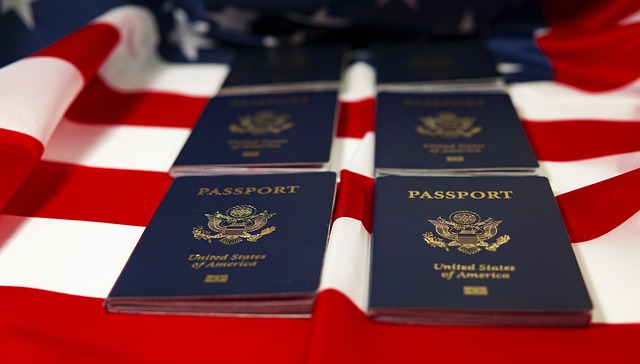Student Visas: Studying in the UK – A Comprehensive Guide

The United Kingdom is one of the most popular destinations for international students, thanks to its world-class universities, rich cultural heritage, and vibrant student life. Whether you’re pursuing a bachelor’s, master’s, or doctoral degree, studying in the UK can be a life-changing experience. However, before you can embark on this journey, you’ll need to navigate the student visa process. This guide provides a detailed overview of student visas for the UK, including the types of visas, application requirements, and tips for a successful application.
1. Do You Need a Student Visa?
Not all international students require a visa to study in the UK. Whether you need a visa depends on your nationality and the duration of your stay.
- EU/EEA/Swiss Citizens: As of January 1, 2021, EU, EEA, and Swiss citizens need a student visa to study in the UK, unless they have settled or pre-settled status under the EU Settlement Scheme.
- Non-EU/EEA Citizens: Students from non-EU/EEA countries generally need a student visa to study in the UK.
2. Types of Student Visas
The UK offers several types of visas for students, depending on the nature and duration of their studies.
a. Short-Term Study Visa
- Purpose: For students enrolling in short courses (up to 6 months) or English language courses (up to 11 months).
- Duration: Up to 6 months (or 11 months for English language courses).
- Work Restrictions: Cannot work or extend this visa.
b. Student Visa (formerly Tier 4 General Student Visa)
- Purpose: For students enrolling in longer courses (more than 6 months) at a recognized UK educational institution.
- Duration: Valid for the duration of the course, plus a few months before and after the course.
- Work Restrictions: Can work part-time (up to 20 hours per week during term time) and full-time during holidays.
c. Child Student Visa (formerly Tier 4 Child Student Visa)
- Purpose: For children aged 4-17 enrolling in independent schools in the UK.
- Duration: Valid for the duration of the course, plus a few months before and after the course.
- Work Restrictions: Cannot work, except for part-time jobs if aged 16 or older.
3. Student Visa Application Requirements
To apply for a UK student visa, you’ll need to submit the following documents:
a. General Requirements
- Completed Visa Application Form: Available on the UK government website.
- Valid Passport: Must be valid for the duration of your stay.
- Passport-Sized Photos: Recent biometric photos meeting UK visa requirements.
- Proof of Admission: Confirmation of Acceptance for Studies (CAS) from a recognized UK educational institution.
- Proof of Financial Resources: Evidence that you can support yourself financially during your stay. This can include:
- Bank statements showing sufficient funds (e.g., £1,334 per month for up to 9 months for courses in London).
- Scholarship award letter.
- Financial sponsorship letter.
- English Language Proficiency: Proof of English language proficiency (e.g., IELTS, TOEFL) if required by your institution.
- Tuberculosis (TB) Test: Required for residents of certain countries.
- Visa Fee: Payment of the visa application fee (typically £348 for a student visa).
b. Additional Requirements
- Academic Qualifications: Certified copies of your academic transcripts and diplomas.
- Healthcare Surcharge: Payment of the Immigration Health Surcharge (IHS) to access the National Health Service (NHS).
4. Application Process
The student visa application process typically involves the following steps:
- Receive CAS: Obtain a Confirmation of Acceptance for Studies (CAS) from your UK educational institution.
- Prepare Documents: Gather all required documents and ensure they are complete and accurate.
- Complete Application: Fill out the online visa application form on the UK government website.
- Pay Fees: Pay the visa application fee and the Immigration Health Surcharge (IHS).
- Book Appointment: Schedule an appointment at a visa application center (VAC) in your country.
- Submit Application: Attend the appointment and submit your application in person. You may also need to provide biometric data (fingerprints and photo).
- Wait for Processing: Visa processing can take several weeks, so apply well in advance of your intended travel date.
- Receive Visa: If approved, you’ll receive your visa and can travel to the UK.
5. After Arrival in the UK
Once you arrive in the UK, there are a few additional steps to complete:
- Collect Biometric Residence Permit (BRP): If your visa is valid for more than 6 months, you’ll need to collect your BRP within 10 days of arrival.
- Register with Police: Some nationalities are required to register with the police within 7 days of arrival.
- Enroll in University: Complete the enrollment process at your university to receive your student ID and access university services.
6. Working While Studying
International students in the UK are allowed to work part-time to support themselves. Key points to note:
- Work Hours: Up to 20 hours per week during term time and full-time during holidays.
- Student Jobs: Common part-time jobs include working as a research assistant, tutor, or in the service industry.
- Work Permit: Some jobs may require a work permit, which can be obtained from the UK Visas and Immigration (UKVI).
7. Post-Study Opportunities
The UK offers excellent post-study opportunities for international students:
- Graduate Route: Allows graduates to stay in the UK for up to 2 years (or 3 years for PhD graduates) to find a job.
- Work Visa: Once you secure a job, you can apply for a work visa or Skilled Worker Visa.
- Permanent Residency: After working in the UK for a certain period, you may be eligible for permanent residency.
8. Tips for a Successful Visa Application
- Start Early: Begin the application process at least 3-6 months before your intended start date.
- Double-Check Documents: Ensure all documents are complete, accurate, and properly certified.
- Be Honest: Provide truthful information in your application and during the visa interview.
- Prepare for the Interview: Be ready to explain your study plans, financial situation, and motivation for studying in the UK.



